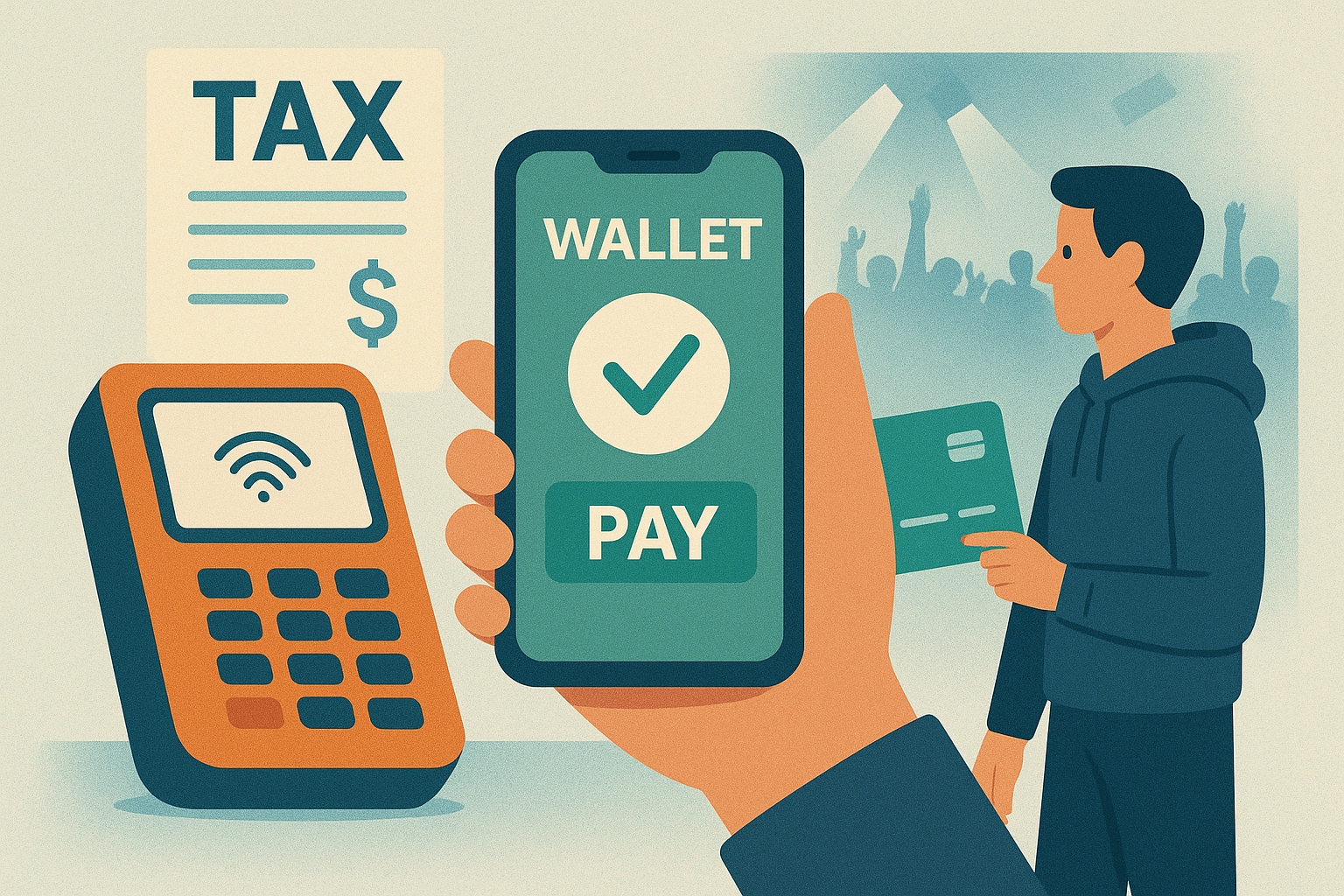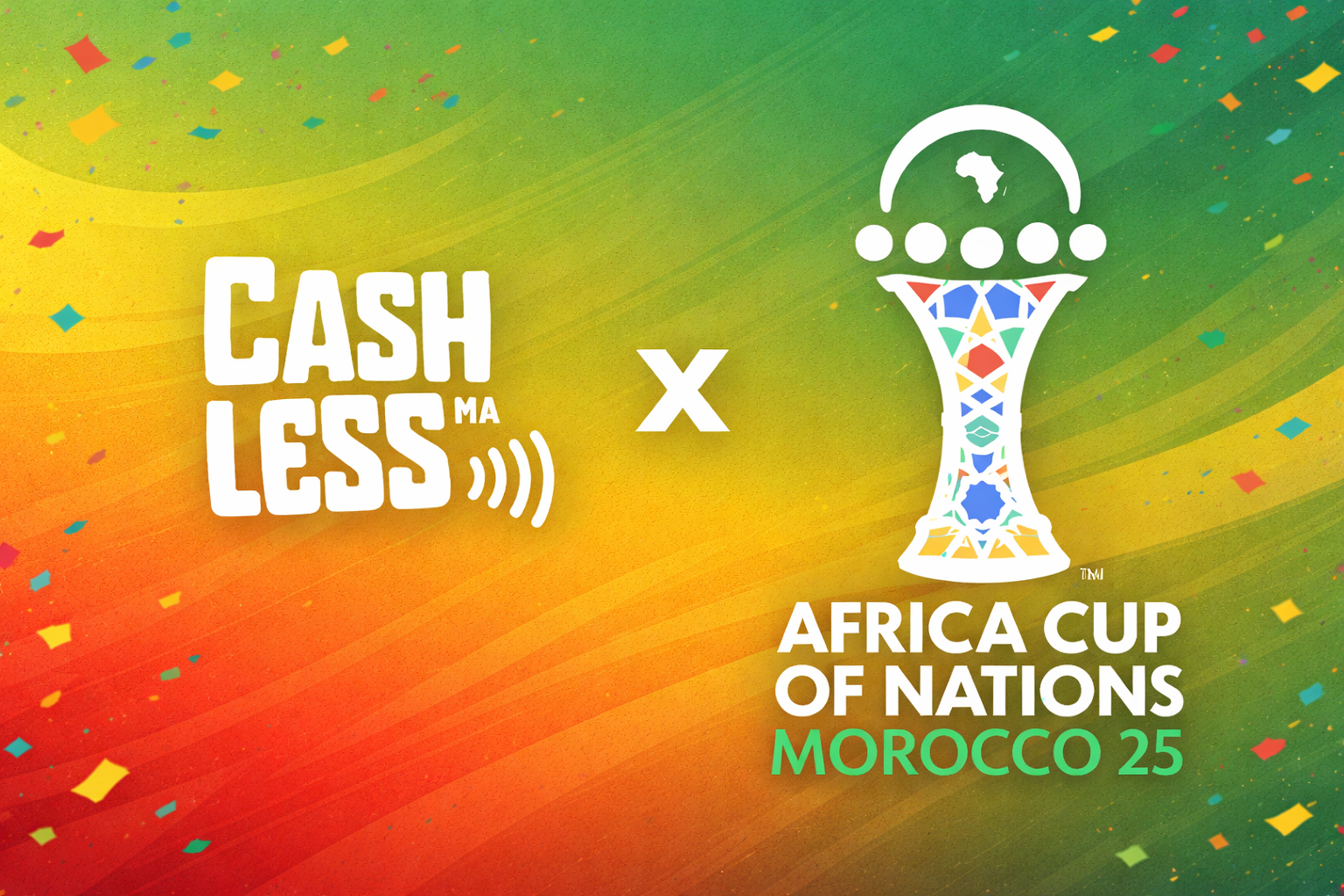· Best Practices · 5 min read
Navigating Tax Compliance in a Cashless World: What Event Organisers Need to Know
As live events move rapidly toward cashless payments, organisers are enjoying faster transactions, better data, and improved customer experiences. But behind the scenes, one topic often creates confusion, delays, and even compliance risks: Tax treatment.

Top-ups, tokenization (e.g. linked credit cards or stored payment methods), spending, breakage income, and payment licensing can be handled very differently across jurisdictions. Misunderstanding where taxes apply (and where it doesn’t) can lead to audit headaches or lost revenue.
This article breaks down the essentials of taxes and regulatory treatment for closed-loop cashless systems — and how Glownet’s platform supports compliant operations globally.
Note on terminology:
In this article, we use the term “VAT” broadly to refer to indirect taxes on goods and services — including Sales Tax, GST, IVA, and other local equivalents. While the rates and reporting obligations differ between jurisdictions, the core tax treatment of cashless transactions is similar worldwide: top-ups are not taxable, and tax is applied when goods or services are supplied.
1. Top-Up ≠ Taxable
One of the most common misconceptions is that taxes apply when a guest tops up their cashless wallet. It doesn’t.
A top-up is legally treated as a deposit or prepayment, not a sale. The taxable event only occurs when the guest spends their balance with a merchant.
Example:
- A guest tops up €50 on arrival.
- They later spend €10 at a bar.
- VAT applies to the €10 sale at the bar — not to the initial €50 top-up.
This principle applies whether the top-up was made via cash, card, or tokenized payments (e.g. a linked credit card stored securely on file). The method of funding doesn’t affect VAT timing — top-ups remain outside the VAT scope until the balance is spent.
2. The Taxable Event: Point of Sale
VAT is triggered at the moment goods or services are supplied. This usually happens at the merchant’s point of sale (POS):
The merchant is the VATable entity, responsible for issuing tax invoices and reporting sales to tax authorities.
The cashless provider is not the tax agent — we provide infrastructure and data to support compliant invoicing.
Organisers can combine merchant transactions into summary reports for settlement, as long as the individual sales behind them remain traceable and auditable.
This structure allows events to remain compliant while benefiting from real-time digital transactions.
3. Breakage: When Unspent Balances Become Income
Another grey area is “breakage” — the unspent and unclaimed funds left in wallets after an event ends.
From a VAT perspective, breakage is not a taxable sale or service. But from an income tax perspective, unclaimed balances often become taxable income once the organiser is legally entitled to retain them (e.g. after a refund window expires).
Accounting treatment typically looks like this:
Top-ups are recorded as a liability (deferred revenue).
As guests spend, the liability decreases and merchants record revenue.
After expiry, unspent and unclaimed balances are recognised as income by the organiser.
The timing and tax implications depend on local laws — some jurisdictions apply unclaimed property rules or prescribe specific holding periods.
4. Complimentary Credits and Tokens
Organisers often issue complimentary wallet credits to staff, artists, or VIPs. These can have different VAT treatments depending on the setup:
Scenario 1: Merchant voluntarily provides goods for free → No VATable event.
Scenario 2: Organiser reimburses merchant for goods → Merchant invoices the organiser, and VAT applies to that transaction. If the organiser is VAT-registered, they can usually reclaim the VAT.
5. Global Regulatory Environments
While VAT treatment of top-ups and spends is fairly consistent, payment licensing rules vary significantly.
Most markets exempt closed-loop systems (wallets usable only within the venue or event) from e-money or payment institution licensing. But some jurisdictions impose extra conditions or thresholds.
| Region | Regulatory Treatment | Top-up Treatment | Breakage Treatment |
|---|---|---|---|
| EU (PSD2) | Closed-loop excluded from e-money definition (Art. 3(k)) | Not VATable | Income after expiry |
| UK | Similar to EU under Electronic Money Regulations 2011 | Not VATable | Income after expiry |
| US | Varies by state; closed-loop under $1,000 usually exempt from money transmitter laws | Not VATable | Income after expiry |
| UAE | Closed-loop allowed without Central Bank licence; open-loop requires authorisation | Not VATable | Income after expiry |
| KSA | Closed-loop generally exempt, but Saudi Central Bank (SAMA) requires licences for open-loop or high-scale wallets | Not VATable | Income after expiry |
| Malaysia | Closed-loop exempt under thresholds; Bank Negara regulates larger stored value facilities | Not VATable | Income after expiry |
| Morocco | Closed-loop often requires partnership with a licensed financial institution | Not VATable | Income after expiry |
👉 Key takeaway: Closed-loop wallets are generally simpler to deploy from a regulatory perspective, but jurisdictional nuances matter. Always check local regulations before launching.
6. Why This Matters for Organisers
VAT and licensing may feel like back-office issues, but getting them right has real operational and financial impact:
✅ Audit protection: correct treatment avoids surprises during tax audits.
💰 Revenue accuracy: proper breakage recognition can materially affect your P&L.
🤝 Merchant trust: clear invoicing and VAT responsibilities simplify settlements.
🌍 International scalability: understanding global frameworks lets you expand confidently.
7. How Glownet Helps
Glownet’s platform is designed to support compliant, transparent cashless operations in any jurisdiction:
Clear VAT flows — merchant transactions are logged and timestamped for auditable VAT reporting.
Accurate accounting — top-ups, spends, refunds, and breakage are tracked in real time.
Tokenized payments — guests can securely link cards for instant payments, with transactions logged and reconciled in line with VAT and accounting rules.
Regulatory adaptability — our closed-loop architecture aligns with PSD2 exemptions, UAE Central Bank guidance, and similar frameworks globally.
Custom reporting — organisers can export aggregated or itemised merchant reports to fit their local tax and accounting requirements.
Our experience operating across Europe, the Middle East, North America, and emerging markets means we know how to navigate these frameworks in practice — not just on paper.
8. Final Takeaway
Cashless technology brings speed, data, and guest convenience — but VAT and regulatory compliance are the foundation that make it work at scale.
Understanding when tax applies, how to treat unspent balances, and which licences you need (or don’t) helps organisers and partners avoid costly missteps. With the right setup, compliance isn’t a headache — it’s a competitive advantage.
📣 Talk to Us Planning to roll out cashless in your market? Our team can help you structure VAT, tokenized payments, and wallet flows correctly from day one, so you can focus on delivering exceptional experiences. 👉 Connect with us to explore partnership opportunities



